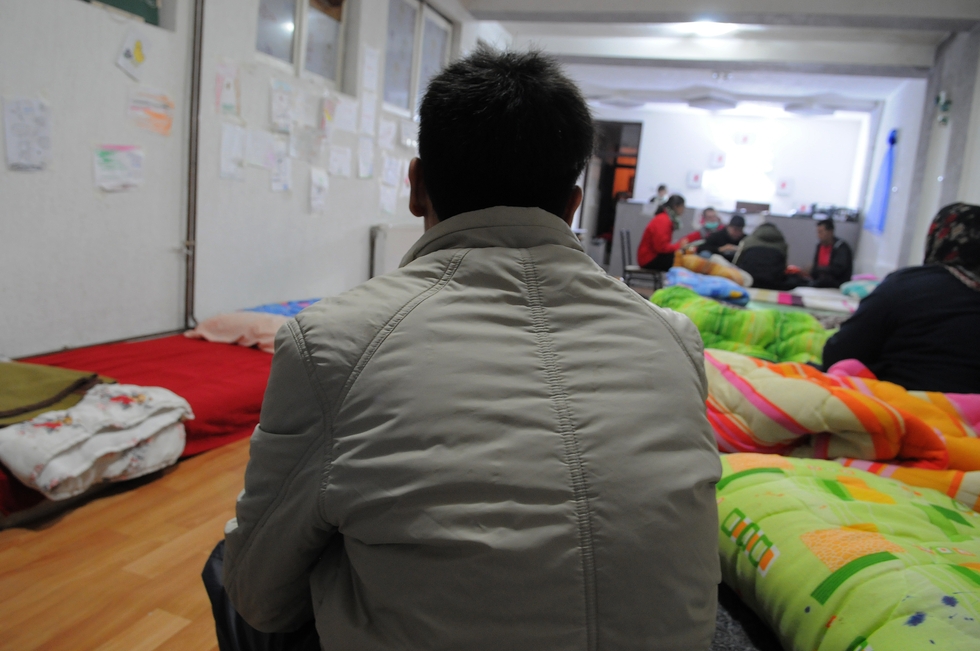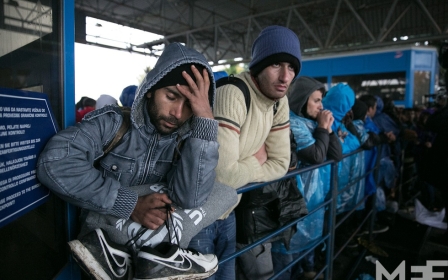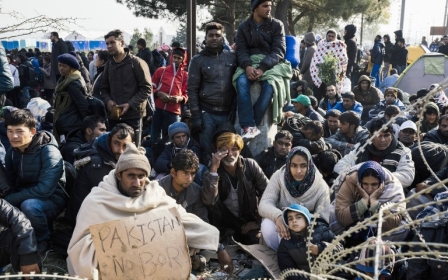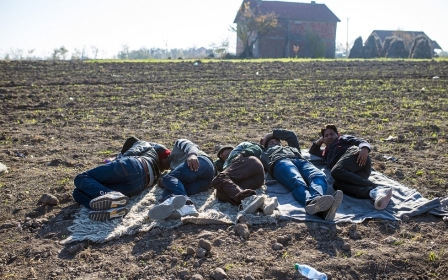At the Balkan borders: 'I had no choice but to run'

New measures by a number of Balkan states to allow certain nationalities only to cross into their territories are leaving hundreds of people in transit stranded at border crossings, uncertain of their rights and without sufficient aid, said the international medical organisation Doctors Without Borders (MSF).
The governments of Slovenia, Croatia, Serbia and the Former Yugloslav Republic of Macedonia (FYROM) are limiting entry to people from the Middle East and Afghanistan.
At the same time, restrictions imposed by the authorities are limiting the capacity of aid agencies to provide shelter and support to those who find themselves stranded.
"Even before this arbitrary triage was put in place, the situation for people in transit in the Balkans was already desperate," said Stefano Argenziano, MSF’s operations coordinator on migration.
"For months we have been calling on authorities for concrete measures to grant safe and legal passage for those in need, but there has been little response," he added.
MSF warned that the new border policies are likely to force people into taking more dangerous routes and into the hands of people smugglers, calling on governments in Europe and the western Balkans to comply with their protection obligations.
"These new measures of segregation by nationality are likely to have dramatic effects," said Stephane Moissaing, MSF’s head of mission in Serbia.
"We fear that some of the people in transit will be forced to go into hiding again, where they will have no access to any humanitarian assistance. This policy forces people into taking more dangerous routes – effectively it puts them into the hands of smugglers and will subject them to further violence and extortion."
'I had no choice but to run'
Sayed (no his real name), aged 16, from Afghanistan, made his way to Europe via Iran with a group of relatives.
His journey came to an abrupt halt on 19 November when he was stopped on the border between FYROM and Serbia, soon after measures came into force barring certain nationalities from crossing into countries in the west Balkans.
Here is his story, as told to MSF workers on the ground:
"Like everybody else we arrived by train and walked to the border. It was night. At the border, there were policemen who asked for our papers and where we came from. My family crossed first – they had no problem. When it was my turn, I showed the papers that I had received in Macedonia. Mistakenly, it stated in them that I was Iranian – probably because I had been living in Iran after fleeing with my mother from Afghanistan. My aunt told the policemen that I was with her and that we are family, but they didn’t listen. They refused to let me cross the border.
"I lived in Iran with my mother for the past three or four years. We are from a village close to Herat in Afghanistan, but we could not stay there. Armed men forced my uncle to go with them to fight, and a cousin of mine was killed. When we were in Iran my father disappeared – I don’t know where he is. And my niece was killed there in her house, when she was praying – she was shot. Those were the main reasons for me to leave. But also the poverty. There are no jobs.
"After I was rejected at the border, I had to stay behind. It was the middle of the night and very dark. I was desperate, but I could not do anything but stay there at the border. Somebody told me it might be opened again tomorrow, so I slept right there in the fields. It was very cold. When I woke up the next morning, the border was still closed, so I went back to a camp on the Macedonian side. There somebody told me that it will probably stay closed for a long time.
"So I decided not to wait any longer but to try to cross the border on my own. I wanted to run past the border police through the fields, next to the railway tracks. I knew that it was dangerous, that I was playing with my life. But I had no choice. I thought to myself: I will either make it or I will die.
"But luckily I managed to cross the border and went with all the other people to a village, from where the buses leave. When I reached the registration centre, I was so scared that I felt sick. At first I didn’t dare show my papers to the police at the entrance, but finally I had to. They said, ‘Oh, you’re from Iran’. And then they sent me away.
"I have to stay outside the registration centre, while my family is inside. I hope that that the mistake in my papers will be corrected and that I will be able to continue my journey. I don’t know yet where we will go. Maybe to Germany – we have some friends there. But I don’t really care where I live; I just want to be in a place where I can live in safety. One day I want to be a doctor. But first my problems have to end."
After several days waiting outside the registration centre in Presevo, Serbia, the mistake in Sayed’s Macedonian registration papers was corrected.
As an Afghan citizen, he was allowed to register in Serbia and rejoin his family – which was only possible because he risked crossing the border illegally.
New MEE newsletter: Jerusalem Dispatch
Sign up to get the latest insights and analysis on Israel-Palestine, alongside Turkey Unpacked and other MEE newsletters
Middle East Eye delivers independent and unrivalled coverage and analysis of the Middle East, North Africa and beyond. To learn more about republishing this content and the associated fees, please fill out this form. More about MEE can be found here.




